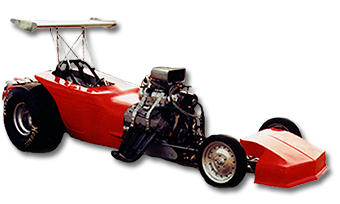Newsletter No. 22 – Fall 2019
Another racing season is soon behind us. Below are some tips and tools to help you get started. You will find most of the publications that we wrote will provide tuning technology that goes way-way-way beyond other sources. Few books are written for the racing that we cover. The common trial-and-error alternative is way more time consuming and expensive.
Use a Kestrel Handheld Weather Station at the track
Kestrel manufactures a portable, hand held weather meter used in motorsports. This is based on a recent technology that developed to help sports enthusiasts influenced by air density to compete. Those with a Kestrel meter can get current air density tuning info. They can still rely on https://airdensityonline.com for historic data, air density forecast, and metric data
RacingJunk.com has what you need
Racingjunk.com is a promotional partner with airdensityonline.com and racecarbook.com. They provide free ads for motorsports vehicles, parts, and accessories with thousands of ads and ad viewers. We are a frequent ad customer to their web site and contributor to their popular technical racing forum.
Books that show you how to improve your racing engine performance for 2020
Our publications are highly technical about race engine setup and tuning with information not available through other sources. All of our books total about 1,000 pages of technology, very well written, and approved by several motorsports experts including Gene Adams, Jim Kinsler, Don Jackson (DJE), and Vern Tomlinson (Hilborn). Much of the subject matter is about racing mechanical fuel injection. We also have unique technological writings on racing fuels including nitromethane, methanol, E85, and racing gasoline.
We developed a powerful, unique fuel injection jetting calculator for precise numerical control over fuel injection tuning. Nozzles, main bypass, high speed, and a second bypass can all be calculated. Fuel pressure and air to fuel ratio can be calculated or jetting to reach target values can be calculated. Now oxygen to fuel ratio can be calculated for very precise tuning. That is a must is some forms of racing such as nitro methanol fuel blends.
We also have tuning services to set up our calculator to a specific fuel injection system. That service can also include a setup for a specific category of motorsports and can go as far as calibration to your instrumented or dyno’d fuel system. That service gives you the capability of numerical control over tuning from now on. We provided this service to several drag, sprint, land speed, road racing, auto, boat, and tractor pulling competitors. Services included normally aspirated and forced induction engines. Fuel systems included Hilborn (and the boost controlled valve), Kinsler, Enderle, Rons, and Engler. We also provided help to other racers with older setups including Jackson, Crower, Algon, and others. Here are links to our technical manuals, fuel injection jetting calculator, and calculator setup services:
- Blown Nitro Racing on a Budget
- Fuel Injection Racing Secrets
- 5000 Horsepower on Methanol
- Jetting for Racing Mechanical Fuel Injection – small block
- Jetting for Racing Mechanical Fuel Injection – big block
- High Horsepower Tuning for Mechanical Fuel Injection
- ProCalc fuel injection jetting on-line calculator
- ProTune fuel injection jetting on-line calculator with setup
- ProTune advance fuel injection jetting on-line calculator with setup calibrated to flow bench, dyno, or on-board instrumentation values.
Free resources for racers:
These resources and writings are good examples of the high technology written about in our publications and provided in our jetting calculator program.
- Archive of Articles on RaceCarBook.com: articles we’ve written for various publications. Topics include air scoop size, nitro, alcohol, working the starting line, weather corrections, eighth mile vs quarter mile conversions, race pavement preparation, getting sponsors, and others.
- Free Air Density Tech Articles: several free articles about race engine tuning for air density changes; such as weather & engine tuning, air to fuel ratio, nitro tuning, reading spark plugs, and others.
